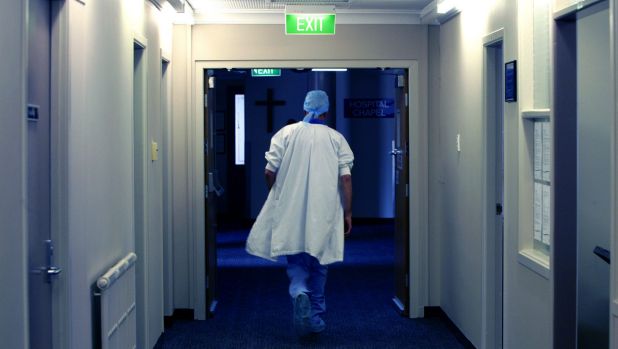Originally published in The Sydney Morning Herald, 14 November 2017
By Richard Chye
One of the hallmarks of the euthanasia debate so far – in NSW and Victoria – has been the determination of its proponents to depict any opposition as being based purely on religion. So, before I go on, perhaps it would help to make the following clear.
I am not religious. I do not follow a faith. While I work for a Catholic healthcare organisation, my views are based on my longstanding clinical experience and medical evidence, not on dogma. There is no one – and no church – twisting my arm.
It’s important to be clear about this because I would like my contribution to be considered solely through a clinical lens.
No fair-minded person questions the starting position of any person actively engaged on this issue, however they feel about euthanasia: we all agree that too many Australians experience painful and undignified deaths.
However, my view, after a lifetime’s work in palliative care – having stood at the bedside of literally thousands of dying people – is that none of the issues that bring us to this point will be solved by introducing assisted suicide.
What will help requires far more of ourselves, our institutions and authorities: the adequate funding of quality palliative care for all, and nothing short of a revolutionary change in the way we discuss, respond to, and accept death – both as individuals and as a society.
Almost every aspect of the way our society approaches death – including within healthcare – needs rethinking.
We set our doctors and nurses and other healthcare professionals up to fail from the beginning by not training them in how to talk to their patients about death and dying.
We don’t train them how to say “no” to patients anxious for a cure – no to another round of chemotherapy, no to another operation – and explain why.
Talking to a patient and their family about death is extremely difficult. It requires finesse, tact, warmth and finely tuned antennae. Without the tools to talk to patients about these issues, is it any wonder so many of my peers shy away from engaging on the subject?
We similarly neglect educating tomorrow’s health workers in palliative care and how – if provided early enough – it can make a world of difference to a person’s final journey.
The result? I can’t tell you how many times I’ve seen bewildered patients arrive at my hospice – too late to benefit from palliative care and often surprised that they are dying at all – still of the belief the invasive, futile treatment they have been receiving would set them on the path to recovery.
We recently advocated that a patient from a country town be treated with palliative care close to her home, family and friends. She was, however, convinced by her doctors to spend 10 weeks in a Sydney hospital by herself, with family making arduous trips to and from her home-town to visit her. She eventually died in that city hospital, never seeing her home again.
Think of the opportunity lost by her, her family, her friends.
What an absolute tragedy for one person to die this way.
For this to occur as often as it does in Australian hospitals is an indictment of how we train, staff and structure our healthcare when it comes to end-of-life.
It’s why so many Australians have horror stories of friends and family dying terrible deaths; and frankly, it’s what drives much of the public’s visceral support for euthanasia.
But assisted suicide will not change any of the above. If anything it’s a diversion from the real challenge.
Of course, better training of our healthcare workers needs to be matched with a prolonged and far-reaching education campaign about death and dying to address the public’s fears – many of them grounded in myth – that surround this stage of our lives.
And of course, we need to be absolutely sure our palliative care system is accessible to all, irrespective of postcode, income, diagnosis or doctor.
Across Australia access to palliative care is patchy and largely down to luck.
No terminally ill Australian should ever find themselves in the position of being unable to experience quality palliative care but able to access assisted suicide.
As a nation which is so highly regarded internationally for our access to universal healthcare, we owe ourselves and our loved ones a lot more when it comes to dying.
Richard Chye is director of palliative care, St Vincent’s Healthcare Australia, Sydney

